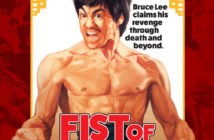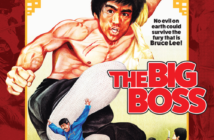Control is a film under a burden, and perhaps that was inevitable. It’s a film that has to try and satisfy legions of dedicated fans, some of whom have held Joy Division close to their hearts for nearly thirty years now; it also has to find a way of introducing Joy Division to new viewers and listeners, including those who’ve perhaps stumbled across them in the context of the voguish post-punk revival. Then, of course, there is the burden of its material: to put it bluntly, how do you make an interesting film about somebody who’s going to end up hanging themselves? How do you animate a story when such a conclusion is in sight?
Corbjin – who both photographed Joy Division and directed the elegiac film clip for ‘Atmosphere’ after Ian Curtis’s death – shoots in stark black and white, and approaches the narrative with understatement: there are no biopic set pieces here, and that’s one relief. And yet, by seeking to explain the disturbing power of Joy Division’s music by focusing on Curtis’s life – his troubled marriage in particular – Control falls short in affect. The facts of biography fail, in the end, to illuminate the art.
Control begins slowly, with a series of vignettes that show us the contours of Curtis’s late teenage life. As Curtis, Sam Riley dreams through science classes at his grammar school and steals pharmaceuticals from the bathrooms of unsuspecting local pensioners. Like so many young men before him, he is in thrall to the narcissistic promise of rock music, moving in front of the bedroom mirror to David Bowie. As viewers we note the gap between Bowie’s shape-shifting, gender-bending glamour and the quotidean surrounds of mid-70s Manchester, but Corbijn doesn’t labour the point.
It’s at a Bowie concert where Ian and his teenage crush Deborah get together, and their fledgling romance dominates the film’s first third. The normally fiery Samantha Morton plays convincingly subdued as Debbie, a woman constrained by both the gender and class expectations of the time. The two of them end up married partly because they can’t imagine another option. Ian goes to work at the employment centre by day, and by night, with Debbie in tow, attends the Sex Pistols’ galvanising performance at Manchester’s Lesser Free Trades Hall. It’s July 1976 and the times they are a-changin’.
Corbijn shows us briefly how the punk moment impacted upon people living nominally ‘ordinary’ lives, far from the whirlwind of London, but one of Control‘s overall weaknesses is the lack of attention paid to the social, cultural, and geographic circumstances that would produce Joy Division. A large part of the band’s enduring power lies in the way that their sound created a spectral echo of their city, Manchester; that their buttoned-up grimness seemed to anticipate the damage of the Thatcher years. It was as if they heard it coming, the decay, the alienation. Control captures none of this, and pivotal Manchester figures – Tony Wilson and the Factory records retinue, producer Martin Hannett, even the other members of Joy Division – are relegated to bit parts. This is particularly a shame for those of us who regard the contributions of Peter Hook, Bernard Albrecht (as he was then known), Stephen Morris, Martin Hannett and designer Peter Saville as being of equal importance to Joy Division as Curtis’s voice and lyrics ever were.
All that said, Control works best during its “performance” sections: Corbijn’s potentially risky decision to have the actors playing the songs live pays off, bringing a dynamism to the film that it would otherwise sorely lack. Curtis, however, remains the focus, and as the film runs on these live performances pivot between Sam Riley – who does a commendable though too restrained impression of Curtis’s tormented flailing – and cutaways to his radiant lover, Annik Honore (Alexandra Maria Lara). Joy Division shows become the crucible for their relationship, in contrast to Debbie, who is brutally excised from the band’s inner circle, pregnant and largely alone.
We know, of course, where this messy triangle is going to lead, but Control reverses cause-and-effect: Ian Curtis didn’t kill himself because his marriage was troubled; his marriage was troubled because he was morbidly depressed. As Deborah Curtis’s frank memoir Touching From A Distance – on which Control is ostensibly based – makes clear, Curtis’s death drive was matched only by his determination to succeed as rock musician. For many reasons he wanted to die, and it is this impulse – this willingness – which the film avoids dealing with. This is a great shame, because the darkness at the heart of Joy Division, their gravitational pull, has everything to do with this unsettling, at times fascistic urge to transcend, to go beyond the living. It is what makes their music so compelling, and yet so toxic, this terrible perfection.
Maybe it is simply a respect for those still living that has stayed Corbijn’s hand, and that is fair enough, though the film has it both ways in terms of mythologising: on the one side we have a man who still got his wife to wash his underpants, on the other we have the classic trope of a misunderstood genius who, as the film ends, drifts skywards as ashes from the crematoria while ‘Atmosphere’ – the most explicitly funereal of Joy Division songs – plays. In playing fast and loose with both the living and the dead, I think that Michael Winterbottom’s 2002 film Twenty Four Hour Party People came closer to capturing Joy Division’s alchemy, a bunch of young men who – almost in spite of themselves – created a sound so haunting that no one else has ever matched it.
Control is in national release, distributed by Dendy Films
Emmy Hennings




